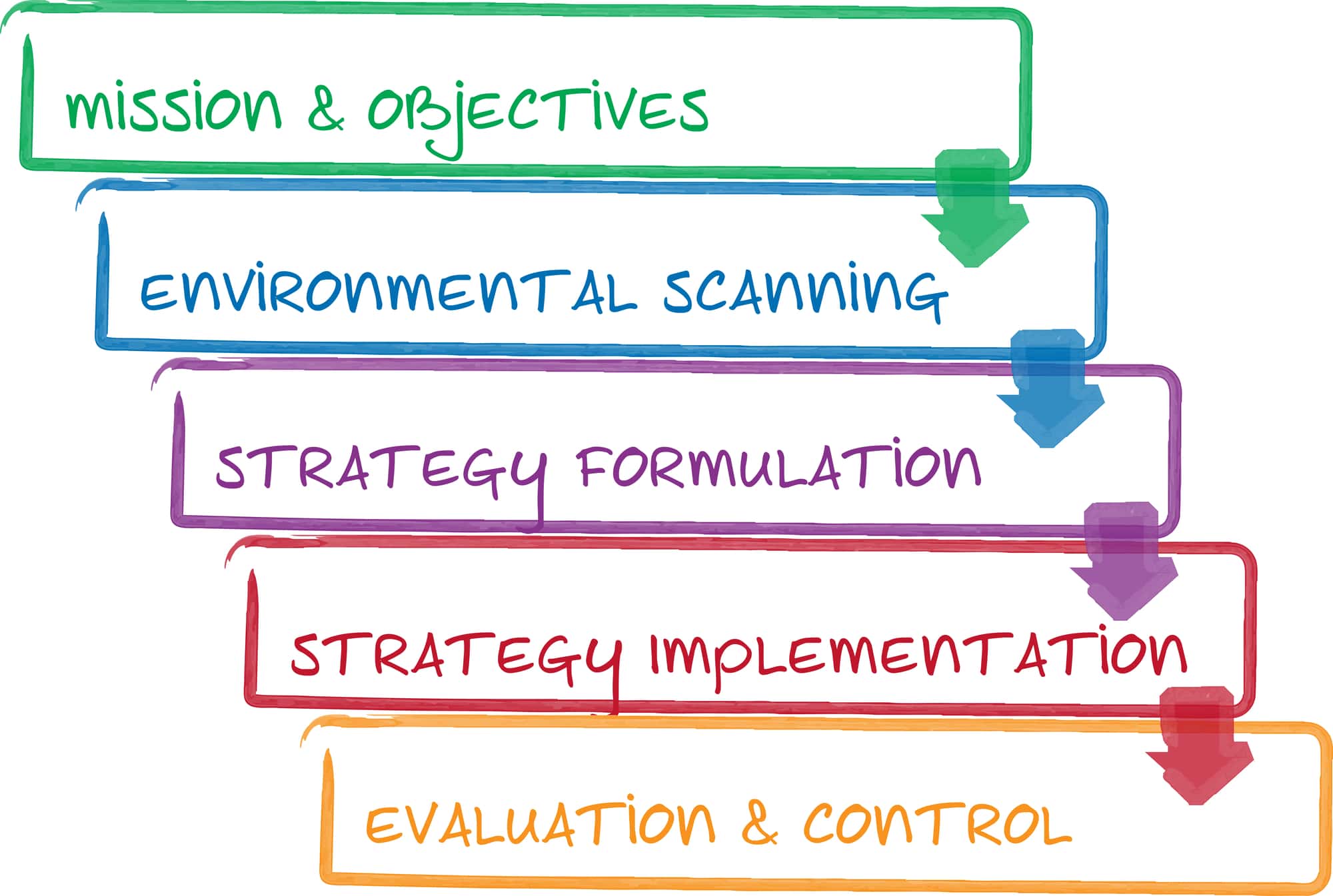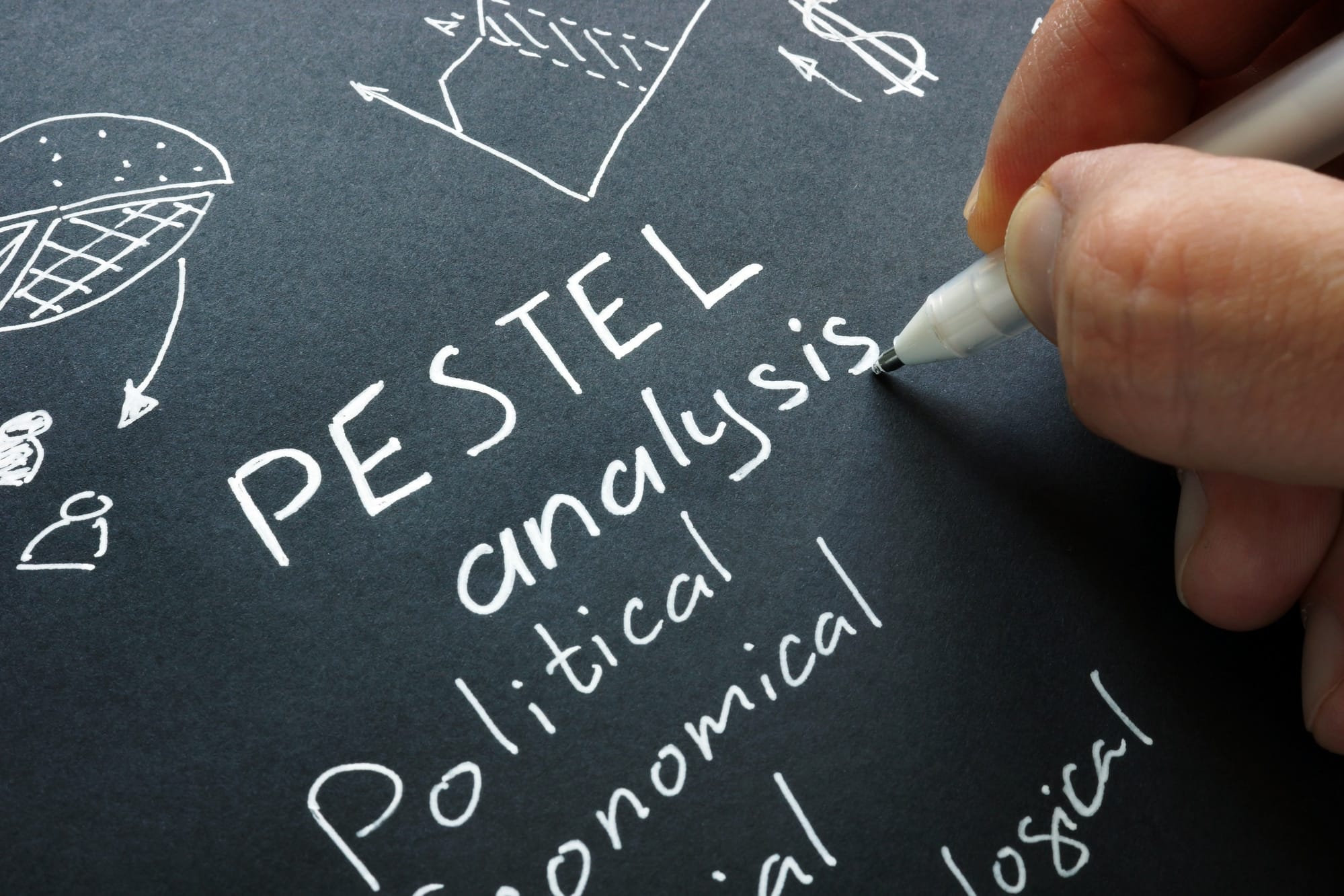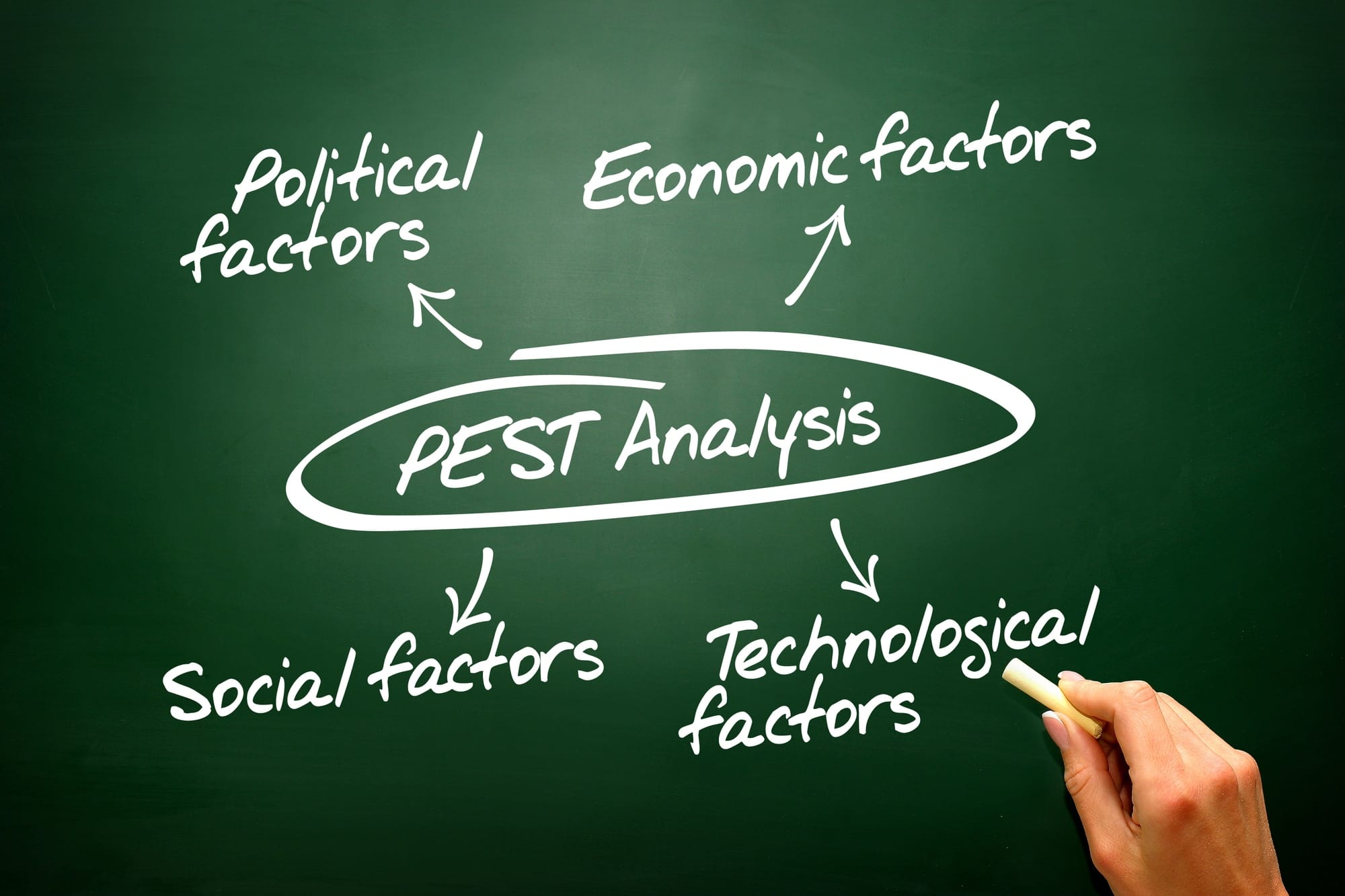What is environmental scanning, how it works in business analysis, and what important tool we can use to make it possible? Hint, it's PESTLE analysis.
If you try and count the number of businesses operating in this era, I guarantee that you won’t be able to even have a rough estimate because the number is for sure immensely large. So many industries in so many countries are scattered over the globe; it is overwhelming to put it lightly. Now how would one decide to start a business venture?
Sure people who have a lot of money or powerful contacts might not have to worry about potential losses as much as ones who start from nothing, but no one likes to lose cash. So how do we decide whether an industry, the type of business, or even the country under consideration is going to be fruitful? That is where environmental scanning comes into play.
Read on ahead to know more about what environmental scanning is, how it works and what important tool we can use to make it possible.
Environmental Scanning
As the name aptly suggests, the term literally depicts scanning one’s environment but when applied to business, it means to understand, assess and evaluate the environment in which the business is to be done.
It is done to observe various existing and emerging trends and patterns in a particular industry or organization
As you know, “environment” is a very broad term so we further break it down into an external and internal analysis of the organization.

Internal Analysis
Internal environmental scanning is possible in an existing organization; if there is no organization to begin with, then what “internals” will we be able to observe?
Every matter in the organization such as employee commitment, satisfaction and interaction, management, shareholders, organizational structure, brand name, etc. becomes a factor to thoroughly observe in order to understand how strong or weak (especially in terms of improvement) a business is.
Internal analysis paints a very good picture of the strengths and weaknesses of an organization.
External Analysis
The main areas of knowledge that are essential to have for an external environmental analysis are the industry in which the business under consideration is operating, the national environment of the country in which the business exists in and the broader socio-economic or better called macro environment.
External analysis is also useful for understanding and forecasting the future of a potential business and it also becomes the basis for internal analysis as well.
Knowing your industry is very important because it will directly influence the business. The industry might be dynamic with quickly emerging trends and changes like in IT or it might be static such as steel. It also gives an insight into the type and strength of competition you might have to face.
Understanding the national environment is also essential because not every country is suited to every kind of business.
The macro-environmental analysis is perhaps the most elaborate of all and the most difficult to do because here we are concerned with the political, socio-economic as well as technological potential of a country, industry or business.
In fact, a very popular and useful tool to successfully conduct an accurate macro environmental analysis is the PESTLE analysis which is explained in thorough detail right ahead.

PESTLE Analysis
An extension of the PEST model, which essentially stands for political, economic, socio-cultural and technological factors, PESTLE further considers legal and environmental factors as well so as to encompass more knowledge.
These factors have the power to make or break your business so rest assured they are important to understand. They come in handy for understanding the various threats and opportunities that an organization might face.
Let’s look at these factors individually to understand how they have an impact on a business.
Political
Politics is what makes the world go round, won’t you agree? Every country in the world is a product of its politics so naturally businesses also tend to get heavily influenced by them. Some of the things which arise as a result of politics that might impact a business include tax policies, bureaucracy, corruption, foreign trade policy and trade restrictions etc.
Moreover the political parties and leaders in power also have a lot of influence on either facilitating or discouraging businesses in a country. Countries which tend to be stable in their politics are also very good for harboring a hub of businesses. Unstable politics are not good for business because with every new obstacle comes a new policy.
Economic
The economic state of a country is also a huge determinant in the prospects of investments and running businesses; no one would want to put in their assets in a country where the economy is in turmoil. However, some investors might find recession beneficial and might want to take advantage of it to enjoy the following boom.
It all comes down to the nature and prospects of the business really. Some factors which might arise out of the economic umbrella are expansion/globalization, interest rates in various sectors of the economy, buying power of the people, industry growth, inflation, etc.
Another interesting thing to consider when we talk about the economy is the rate of unemployment. Chances are that you will find many people to hire if you plan on starting a business amidst soaring rates of unemployment, especially during the pandemic.
Monetary policies also affect the economy, especially prices of raw material for production companies. So having a thorough idea of economic trends is very important.
Socio-cultural
When a company or a business decides to operate in a particular market, be it a result of expansion or anything else, it is very important to be aware of the segmentation.
You will come across a variety of income groups, age groups, lifestyle choices, spending habits and behaviors in every market you see. It is detrimental for a business to have a solid understanding of their target demographic.
Every nation has its own culture, some countries even have subcultures so if an organization thinks of expanding on a global level, they will have to do things differently everywhere.
McDonald’s operates around the world; they have specific items in each country which aren’t found anywhere else because they are made for certain palates.
Often some things which are totally acceptable or even celebrated in one culture are deemed inappropriate and offensive in others so it’s advisable to be careful during operations because if the business does not mix with the socio-cultural environment of a country it won’t be successful.
Technological
A business that has an edge on its technology is probably way ahead of its competitors already, however having a sound grasp on it and more importantly, having access to it are make or break conditions.
It is one thing to have good technology but another thing to know how to use it to your advantage; is the workforce capable of handling the kind of technology your business needs to thrive in the country or region you want to grow out of?
Some businesses might benefit from getting a technological upgrade. Knowing your business in and out and understanding what technological advances you will need to support your growth strategy is extremely important.
A very important benefit of having strong technology is the reduced costs. Whether you are in manufacturing or services, technology makes it possible to cut down your overall costs by increasing efficiency.
An important aspect of technological advancement is how tech-friendly the customer base is; try and understand their habits. Will they be researching your business on the internet frequently? If you are a technology business, will the people be able to comprehend your offering?
Legal
It goes without saying that your business should be legal by all definitions. Although many organizations are able to find legal loopholes, it is not a worthy risk to take at any point. Do not break laws people! It is not cool.
A business develops respect and consequently garners attention from customers and investors alike when it adheres to the laws of the country; not just the country but laws of international trading as well.
An organization has a duty towards the environment as well, some countries have made it abundantly clear on how to make sure that the environment does not get degraded. Laws regarding labor such as minimum wage and keeping their health in check also exist in many parts of the world.
Tax fraud can also be avoided if businesses file their taxes regularly and if extensive audits take place regularly.
Some businesses are better suited to certain laws; an LGBTQ-themed business will not be able to operate in Saudi Arabia for example because homosexuality is against the law in the country.
So be very keen about the laws and restrictions (especially custom duties, import/export policies and rates) in the countries affected or served by your business so as to avoid any entanglement with law enforcement agencies.
Environmental
It is important to be aware of the environment in which an organization does business because sometimes the geographical location, the climate, and weather just don’t do anything positive for it.
However, a far more important aspect of the environmental factor is the opposite; most businesses aren’t safe or suitable for the health of the environment. The human impact is increasing at an exponential rate each day.
The waste produced by industries around the world has destroyed our ecosystem in totality. The recent climate report released mentions how dire the situation has become.
Be wary of how your business impacts the wildlife, plant life, and the people around you. If you are taking away more than you are giving, what is the point?
Companies that have a CSR policy and they actually work hard for making sure that they play their due role in giving back to the environment are not only the need of the hour, they are also much more respected and successful amongst consumers.
An average consumer today has access to all sorts of information about the work any company does so being sustainable and environmentally conscious is also good for business.

Why is PESTLE Analysis Useful?
As we have discussed in detail, PESTLE is essentially a macro-economic tool used for analyzing and comprehending a business atmosphere. One might argue that the entire analysis is tedious and takes many research hours but the outcome is surely worth it.
Not only is it helpful for existing businesses to constantly assess what kind of waters they are trailing, it also is important for assessing the prospects of the introduction of a new business or growth of an existing one.
In fact, globalization is made possible through similar tools such as the PESTLE. I think it will be safe to assume that at this point in the article you have understood how it all works.
Environmental scanning is made possible through such useful tools. You will not be able to fully know everything there is to know about a potential region or country where you plan on conducting business.
It is not compulsory for one to only be interested in environmental scanning to start a business only; sometimes people just want to have a solid understanding of how businesses work to become successful around the globe.
The beauty of PESTLE is that it is just as useful a tool for existing businesses as it is for potential ones. So it is recommended that you work on a few for yourself to be able to draw out PESTLE analysis at will!
Conclusion
Now that you know much more about environmental scanning which further expands into a thorough analysis, you can appreciate how useful a PESTLE analysis can be for everyone.
Just to refresh the memory after all that reading you did, a PESTLE analysis stands for political, economic, socio-cultural, technological, legal and environmental analysis because these macro factors are essentially what influence a business the most prominently.
You don’t necessarily have to be a business owner in order to work on a PESTLE analysis, you can be a keen learner or even a student who wants to have a better grip on the concept so that one day you might take a company to soaring heights.


